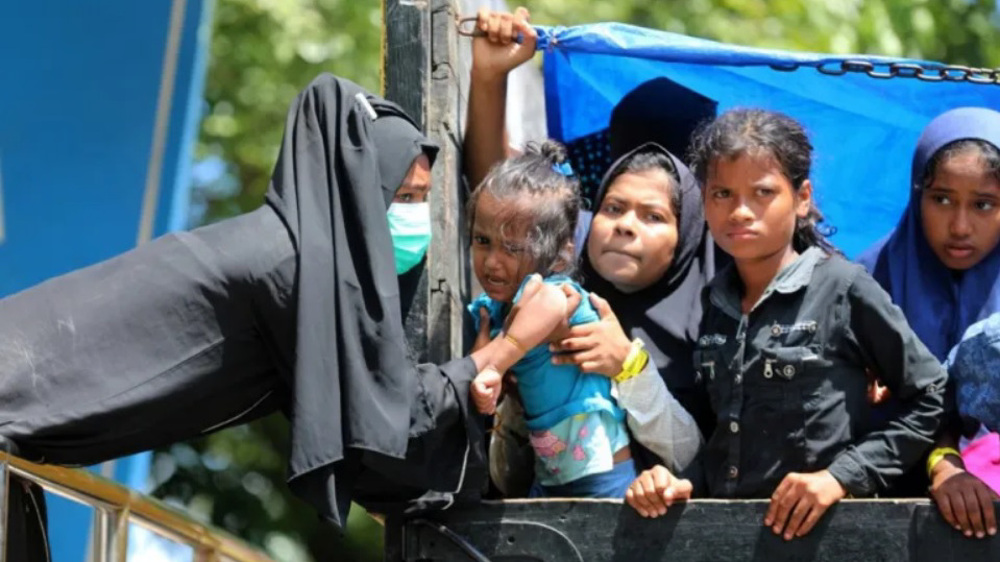Indonesian police arrest 3 suspected terrorists linked to Daesh
Police in Indonesia have arrested three suspected terrorists in the country’s West Java Province on suspicion of being linked to a Wednesday bombing attack that left three officers dead in Jakarta.
West Java police spokesman Yusri Yunus said the suspects were captured on Friday in three places in Bandung, the capital of the West Java Province.
The three arrested terrorist suspects have been linked to the Takfiri Daesh group, which is mainly active in Iraq and Syria but which also carries out terrorist operations in other countries.
Daesh had claimed responsibility for two bombing attacks that occurred approximately five minutes apart at a bus station in Kampung Melayu and that killed three police officers and injured 12 people on Wednesday.
The attacks were the deadliest in Indonesia since January 2016, when eight people were killed in a bombing and shooting attack in the capital, Jakarta.
After visiting the site of the Wednesday attack, President Joko Widodo said Indonesia needed to accelerate plans to strengthen anti-terrorism laws to prevent new attacks.
“If we make a comparison with other countries, they already have regulations to allow authorities to prevent [attacks] before they happen,” Widodo told a news conference.
The president said he had ordered the chief security minister to get the revisions done as soon as possible.

Long-standing plans to reform Indonesia’s 2003 anti-terrorism laws have been stalled by opposition from some parties in the parliament and concerns about individual rights. The revisions would broaden the definition of terrorism and give police the power to detain suspects without trial for longer periods of time.
The changes would allow police to arrest people for hate speech or for spreading radical content, as well as those taking part in paramilitary training or joining banned groups.
Muhammad Syafi’i of the opposition Gerindra party, who chairs a committee deliberating the bill, said there were still outstanding issues regarding the bill that needed further discussions.
“This bill needs to be discussed in a cautious and comprehensive way because the purpose of all regulations in this country is to ensure they do not result in the slaughter of Indonesian people... but protect them,” he said.
Trump administration moved to cut funding for ICE body cameras
VIDEO | Qeshm: Iran’s biggest island boasts 1st UNESCO geopark in region
VIDEO | People in Spain’s Granada mobilize against Gaza genocide, US imperialism
VIDEO | Thousands protest in Brussels over austerity measures
Kata’ib Hezbollah asks fighters to prepare for 'war' in support of Iran
Israeli warplanes conduct new aggressions across southern Lebanon
VIDEO | Possible US-Israeli aggression on Iran
VIDEO | US deadly protest crackdown












 This makes it easy to access the Press TV website
This makes it easy to access the Press TV website